Glenn Adamson and Friedman Benda examine spirituality in contemporary design
Curated by Glenn Adamson, ‘The New Transcendence’ at New York’s Friedman Benda (until 24 February 2024) highlights designs by leading talents infused with metaphysical value
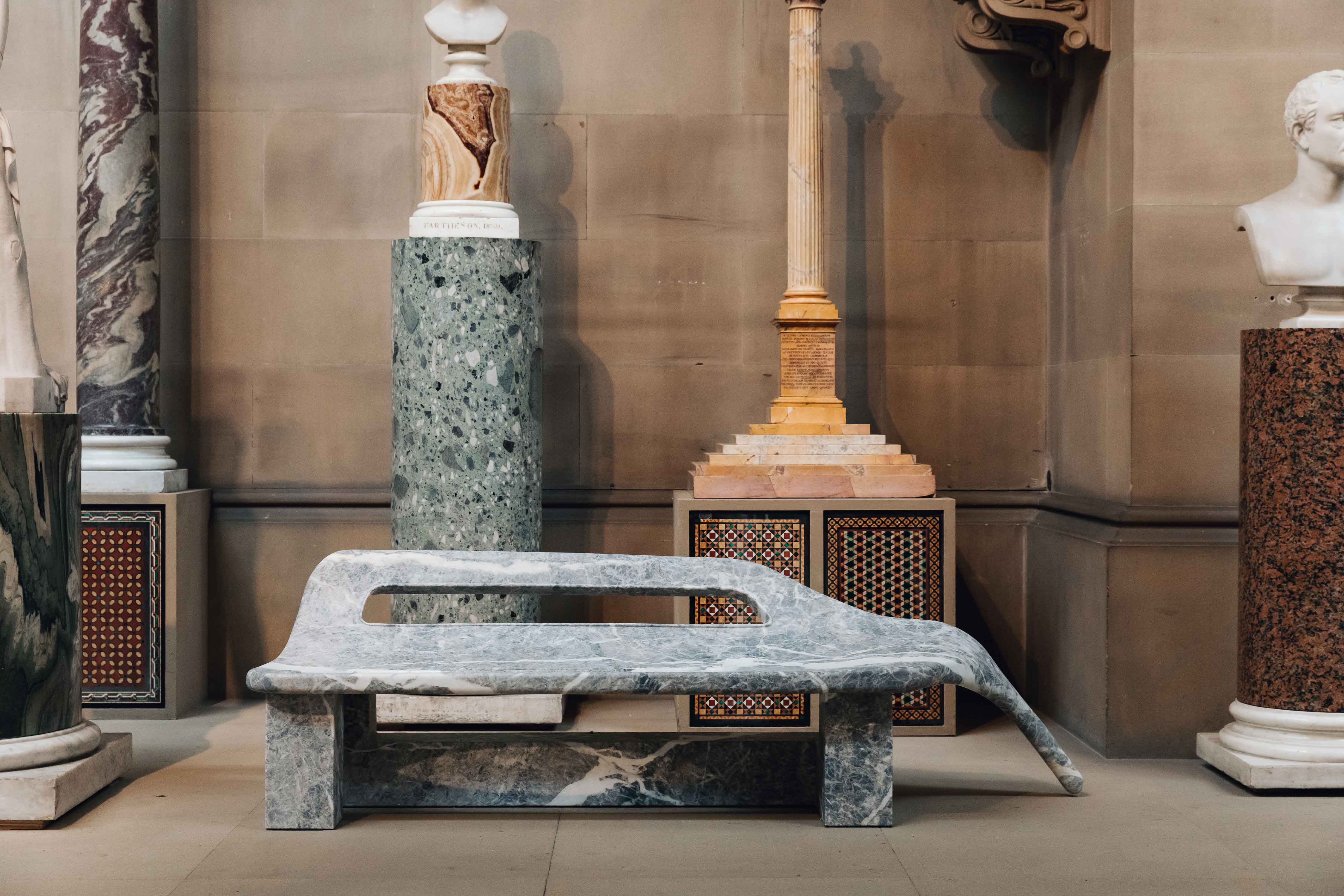
Collectible design or – as noted curator, writer and historian Glenn Adamson has redefined it – vanguard design is often concerned with conveying and even embodying messages about production, materiality, identity, culture, and politics. Like fine art, it’s about much more than just function and form.
From the late 1960s through the 1980s, radically inclined talents in Italy and elsewhere used furniture and other applied mediums to challenge social conventions. Subverting the composition of a table with unexpected shapes and materials allowed them to make bold statements about how we live and consume. Later in the 1990s, a group of Dutch designers began to take on a similar humoristic and experimental approach. Burning a widely respected classic armoire or making a chair out of knotted rope was all the rage, as was pushing the limitations of standard production.
This tradition has carried through to today, spawning an ever-growing community of creatives and aficionados. Talents increasingly look to implement design as a means to comment on sustainability or express themselves in new ways.
Glenn Adamson curates ‘The New Transcendence’ at Friedman Benda, New York
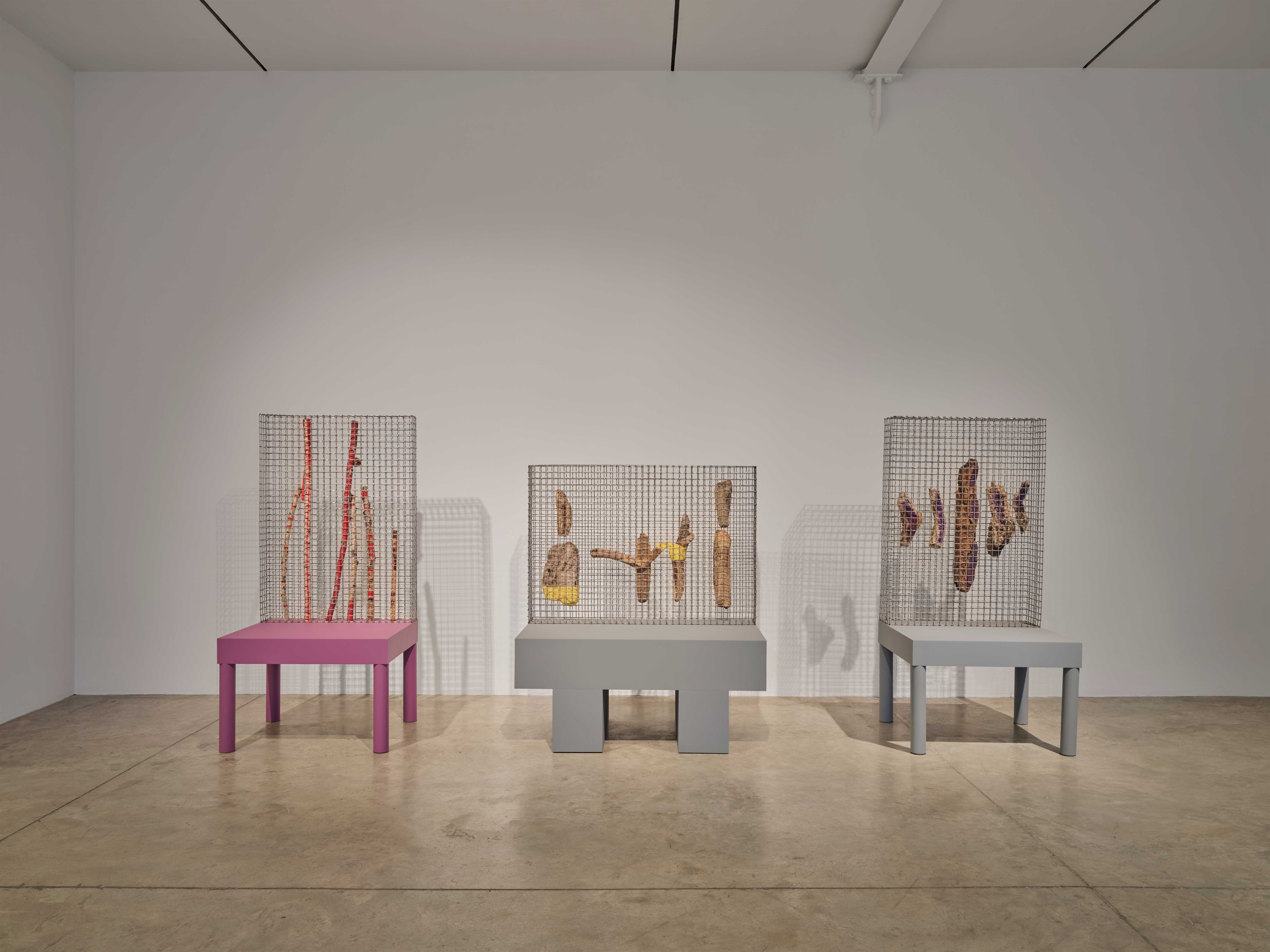
‘Roots’ series by Andrea Branzi
Increasingly, designers are imbuing their creations with spiritual significance. On view at New York’s Friedman Benda gallery (from 11 January until 24 February 2024), 'The New Transcendence' seeks to highlight this latest trend. The show is the last in a series of three curated by Adamson over the past three years, intending to pinpoint the zeitgeist. Drawing parallels between historical and contemporary designers, the survey presentation includes key works by the late Italian master Andrea Branzi alongside concept pieces by contemporary heavyweights Ini Archibong, Stephen Burks (whose 2023 solo show ‘Spirit Houses’ in Chicago also explored spirituality), Najla El Zein, Courtney Leonard, and Samuel Ross.
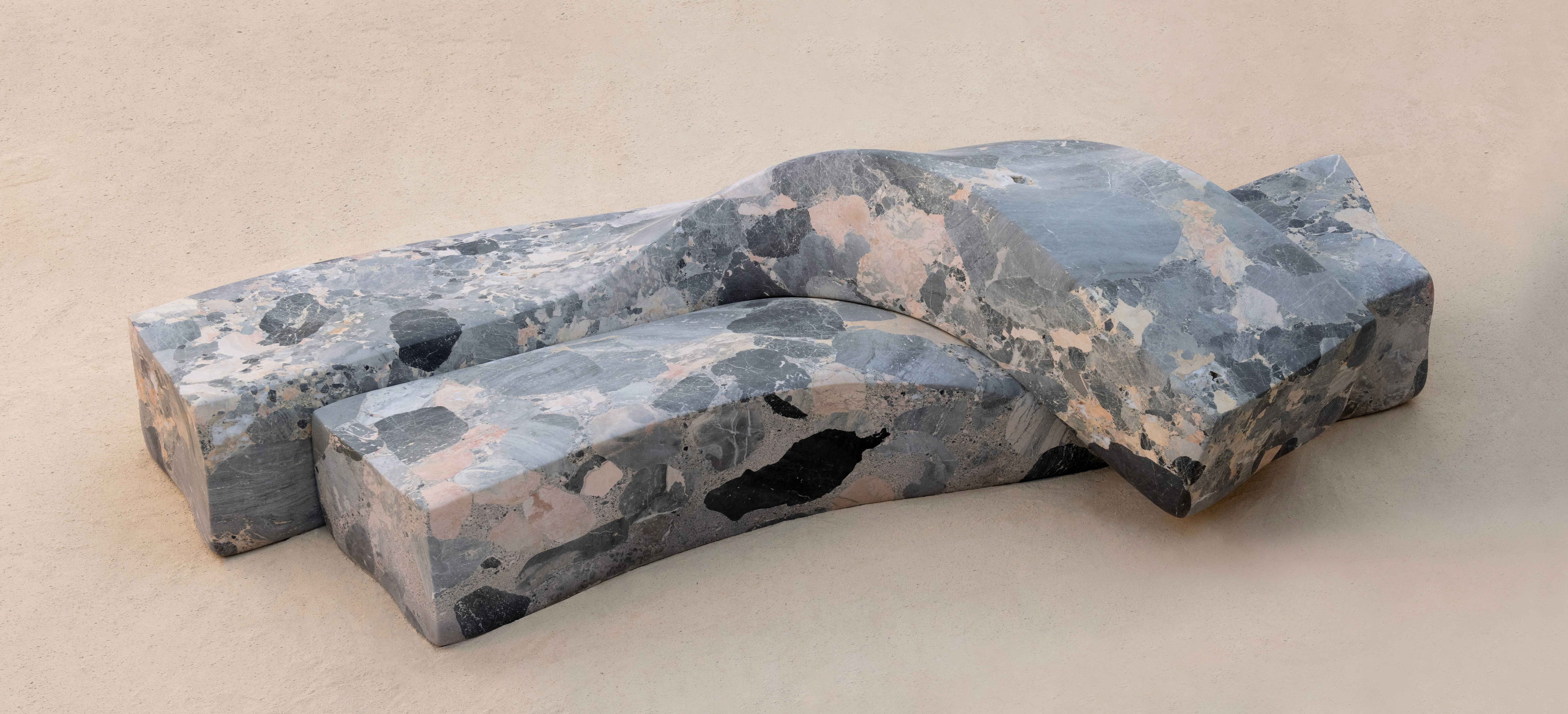
‘Lovers Bench’, Najla El Zein
'Everyone's coming from a very different point of view, but what they all have in common is the idea that the object is a locus we can congregate around,' says Adamson. For him, this shared interest is less about religion and more about finding deeper meaning. 'It's a show about the big picture; mitigating what's happening around us and delving into the fundamentals of human capability and connection with things that are beyond ourselves.' All of the works on view somehow offer the user the chance to experience something beyond what's physically present.
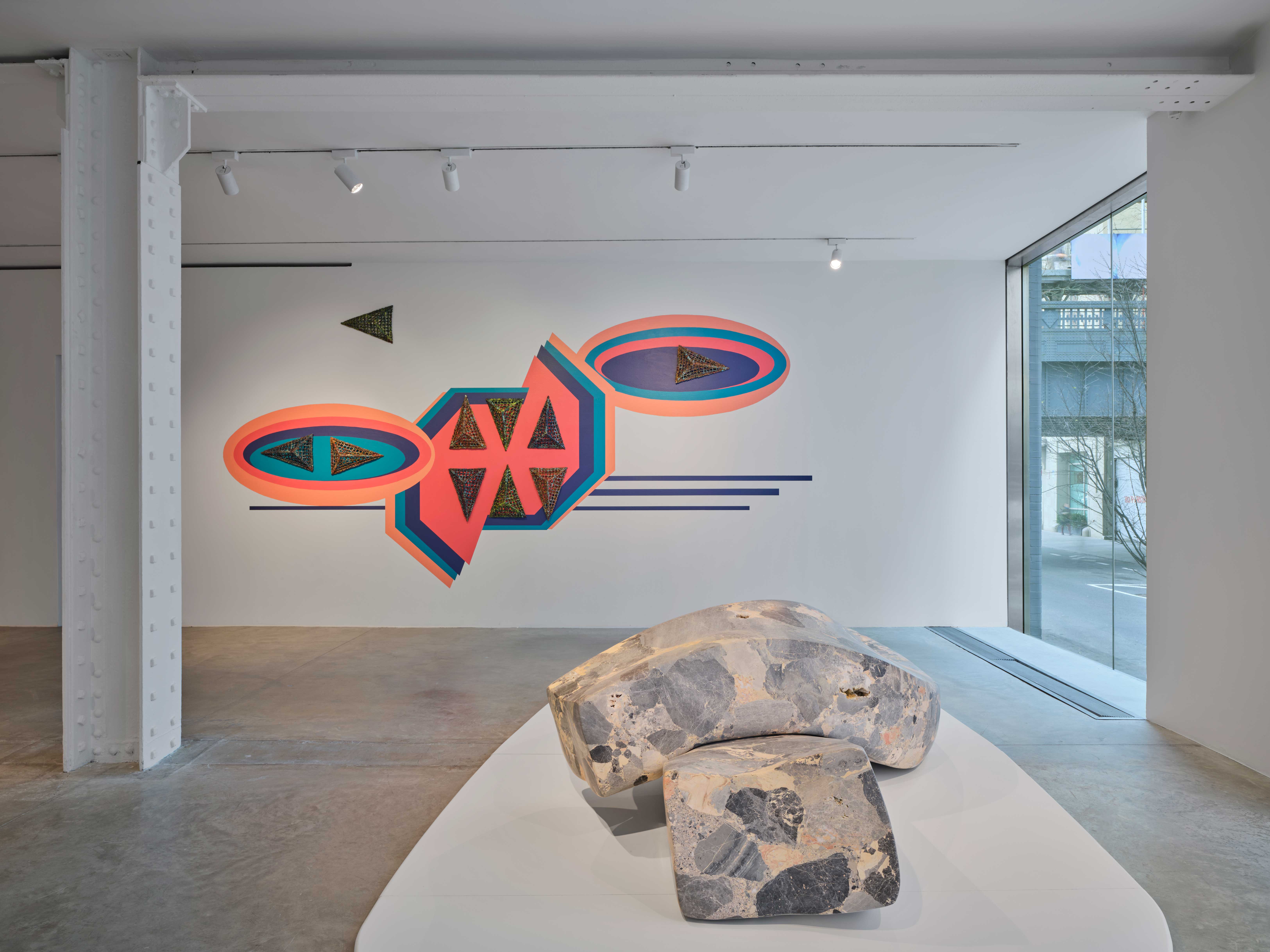
‘Breach: Logbook 24’ by Courtney Leonard, ‘Lovers Bench’ by Najla El Zein
'Transcendence. The word means, literally, “rising above”, and the feeling of it is just that: a certain interval, perhaps sustained, perhaps over in a mere flash, in which the everyday world falls away, and a higher connection prevails,' Adamson writes in his curatorial statement. 'Chairs, lamps, cabinets, and vessels are earthly things. They attend to our practical rather than our spiritual needs. They are often regarded as mere commodities, or otherwise cast in a cultural supporting role. What would it take for us to invert these expectations, and to see functional objects as the ultimate vehicle for transport?'

‘Ancestors (Guardian)’ by Stephen Burks
Meanwhile, Branzi’s ‘Roots’ series of chairs reflects his extensive exploration of the topic. For him, these combined sculptural pieces incorporate both natural elements that don’t necessarily have a reason for being in place but somehow appeared from the heavens. Forming the anchor of the exhibition, these seminal works evoke aspects of divine intervention, from ancient times or even the cosmos.
Receive our daily digest of inspiration, escapism and design stories from around the world direct to your inbox.
Archibong’s contribution stems from his investigation of the Bahá'í faith – a spiritual denomination promoting the idea that humanity needs to find a unifying vision of the future that links society, nature, and the purpose of life. While Burks continues to reinterpret the practice of mask-making throughout certain parts of Africa, Ross’ ‘Optimistic’ bench stems from his ongoing quest to coalesce specific, culturally charged materials, finishes, and forms in a bid to encourage hope.
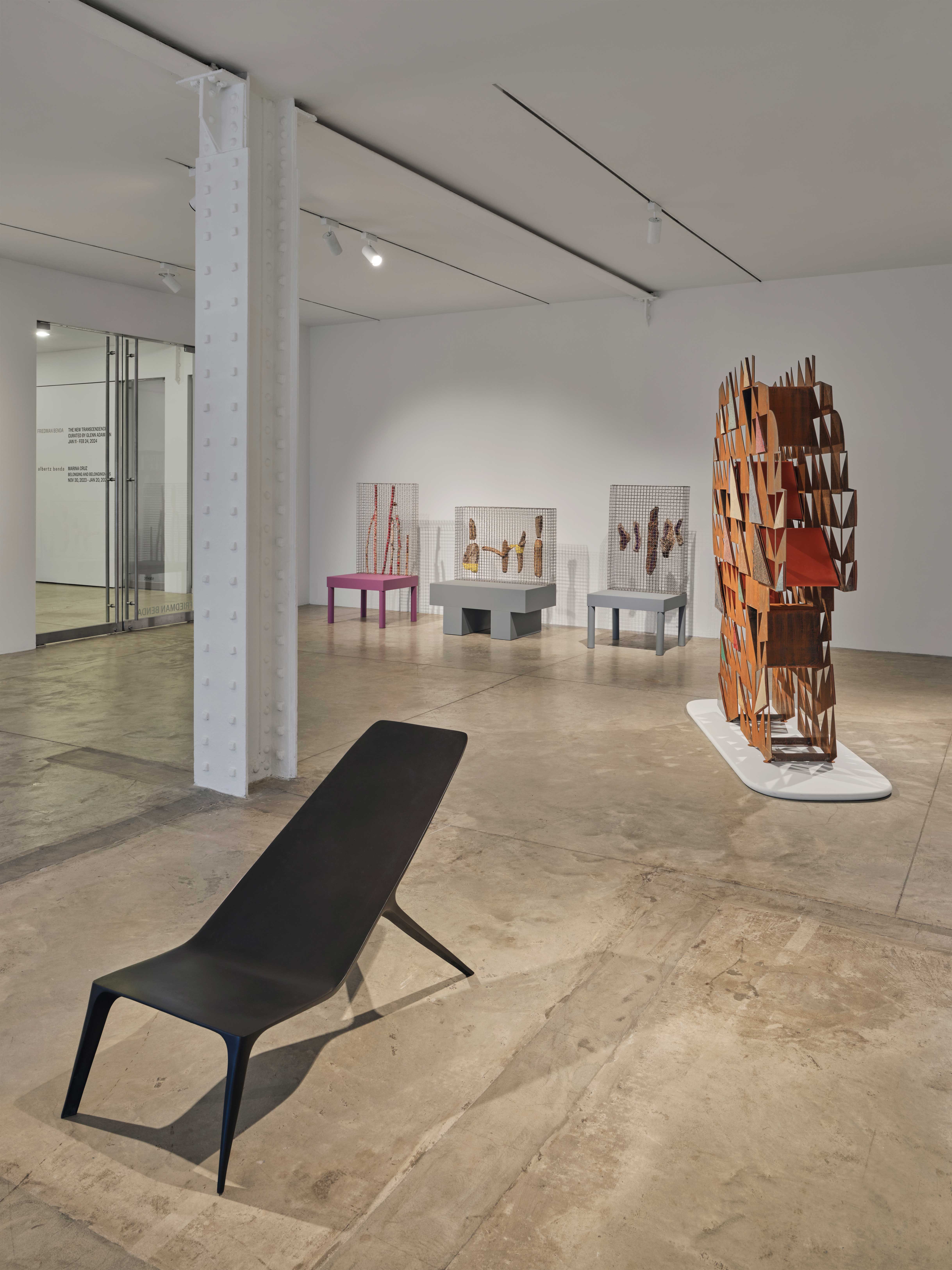
‘Stargazer’ chair by Ini Archibong, alongside works by Andrea Branzi and Stephen Burks
El Zein’s format-defying stone benches accomplish this type of translation by rendering a seamlessly inflexible material into something soft and otherworldly. Leonard – who hails from the Shinnecock Nation – crafts her ceramics by carefully selecting materials and forms that each carry their own meaning individually and convey new ones when combined.
‘New Transcendence’ is on view at Friedman Benda until 24 February 2024
Friedman Benda
515 West 26th Street
New York, NY 10001
Adrian Madlener is a Brussels-born, New York-based writer, curator, consultant, and artist. Over the past ten years, he’s held editorial positions at The Architect’s Newspaper, TLmag, and Frame magazine, while also contributing to publications such as Architectural Digest, Artnet News, Cultured, Domus, Dwell, Hypebeast, Galerie, and Metropolis. In 2023, He helped write the Vincenzo De Cotiis: Interiors monograph. With degrees from the Design Academy Eindhoven and Parsons School of Design, Adrian is particularly focused on topics that exemplify the best in craft-led experimentation and sustainability.